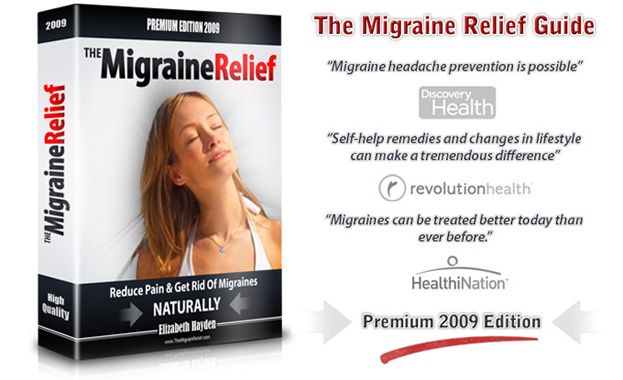Treatments For Migraine
For people who suffer with migraines a cure would be a wonderful and amazing thing, but currently we can only treat the pain and try to prevent recurrence through medication and life style modifications. The pain can be debilitating and whether you suffer from migraines occasionally or whether the problem is chronic, you simply want relief. Treatment for migraine headaches is usually two-fold.
Prevention frequently involves making some lifestyle changes. You need to evaluate whether you get enough rest and exercise, along with analyzing contents of your diet. Additionally, you will want to avoid known triggers. These vary from person to person, but some of the common foods associated with migraine attacks are caffeine, MSG, cheese, chocolate, and red wine. Needless to say, emotional stress also plays a major part in triggering headaches, but abrupt changes in altitude, bright, flickering lights, intense odors, and sudden changes in the weather may also instigate an attack. Of course, it is impractical to assume you can avoid every trigger. But you can avoid those foods that you suspect bring on a headache in you. As for the weather, there is not much we can do affect that.
If you have carried out lifestyle changes and you still continue to have frequent headaches, your doctor may recommend drug therapy. Beta-blockers such as propanolol and timolol may help to prevent a migraine. Precaution must be to take them exactly as prescribed, even during those times when you are feeling fine. Some anti-seizure medications such as Depakote and Topamax may also help to prevent migraine headaches.
Women constitute about 75% of migraine sufferers and here it seems that family history does seem to play a part. Approximately 70-80% of people who experience migraines have a family history behind them. They also have a tendency to affect people between the ages of 15-55. Only about 5-10% of children are affected by migraines and they occur equally between boys and girls. These usually resolve themselves by the time they reach adulthood, at which time they become the less severe tension headaches.
Most people who have infrequent migraines make use of over the counter drugs for pain relief. Aspirin and acetaminophen don't usually work well for this degree of pain. NSAID's, such as Aleve, often help with the pain or you might find that one of the combination migraine formulas may be more effective. Many people report that ice wraps are helpful in relieving pain and, of course, being able to rest in a quiet, darkened room is advisable. Some studies suggest the herb Feverfew may be helpful in preventing migraine headaches. It has relatively few side effects, but checking with your doctor before using any herbal remedies as a migraine headache treatment is highly recommended, in that you don't want to be in the position of taking treatments that countermand each other.
